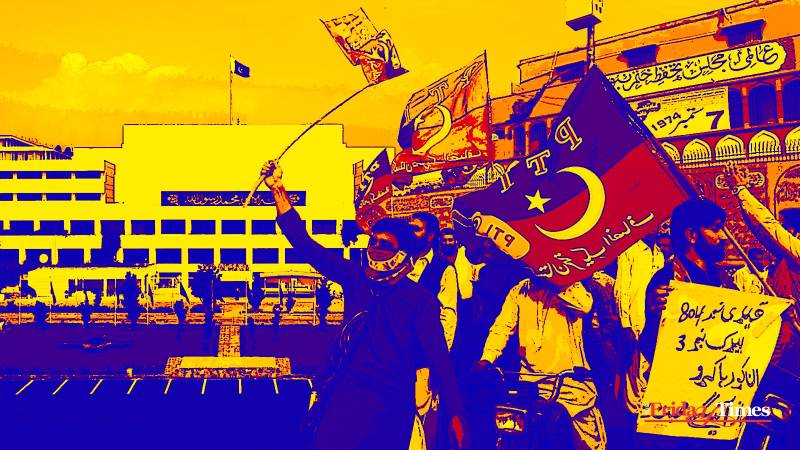
This past year has been very uncertain in Pakistan. There have been a lot of upsetting events that have tested the country’s fragile democratic foundations. Supporters of the opposition, the Pakistan Tehreek-e-Insaf (PTI) political party, attacked military installations after the arrest of their leader, Imran Khan. The government took firm action, arresting many PTI party supporters. There was also a disputed election that has raised concerns about the fairness of the voting process is. As a result, Pakistan now faces enormous challenges because of these turbulent events.
Growing instability and violence marked the period leading up to the May 9th showdown. The details of the incident are still unclear. However, they led to increased distrust between the establishment and the PTI. This time was akin to the dark years of German history from 1923 to 1933 when democracy fell apart and autocracy took over. The establishment says the PTI tried to take power, like the fascists’ unsuccessful Beer Hall Putsch. The PTI has accused the government of planning a fake attack, drawing a comparison to the Reichstag Fire incident, falsely blamed on the communists.
The new government, led by Prime Minister Shehbaz Sharif, is barely holding on to power despite the support of the powerful establishment. The country is facing increasing economic challenges and growing public dissatisfaction. Basic infrastructure such as healthcare and education are in disarray, poverty rates have risen, high inflation has negatively affected people’s livelihoods, the national economy has weakened, and terrorist attacks are frequent. While other developing nations are making progress, Pakistan is constantly dealing with internal power struggles and financial collapse.
One party insisting on pre-conditions is not helpful. The PTI’s decision to only negotiate with the establishment limits the chances of finding solutions to the current crisis.
The current situation presents significant challenges and uncertainty about potential outcomes. Authorities want the PTI to take responsibility for the May 9th violence and apologize to the nation. However, the PTI refuses to admit its role in the May 9th violence and claims that the civilian government came to power illegitimately. It considers the government an unworthy negotiating partner. There is a growing concern that the standoff is heading toward a confrontation that may not end peacefully.
Achieving national harmony requires selfless, courageous leaders dedicated to building bridges, not walls. The problem is that the political process in Pakistan has become a personal power struggle. Heated debates, divisive campaigning, and shaping public opinion over presenting facts are the hallmarks of political campaigns. Political parties and leaders operate like cults - sycophantic and authoritarian, instead of focusing on enhancing democracy or committing to public service.
Many Pakistanis feel the political system has failed them, working to entrench the advantages of the elite rather than serve the people.
Moreover, certain influential institutions have a significant impact on the democratic process, which raises concerns about fairness and impartiality. These institutions can plan, plot, and manipulate elections. This structure lacks proper accountability and oversight, which contradicts the core constitutional principles of separation of powers.
In a democracy, all parties need to talk and work out problems together. It is vital because it allows everyone to share their concerns and find solutions. One party insisting on pre-conditions is not helpful. The PTI’s decision to only negotiate with the establishment limits the chances of finding solutions to the current crisis.
Nevertheless, when the government and establishment control state power and resources, they have an advantage over others. In these situations, the leaders should listen, admit past mistakes, and find a solution everyone agrees on rather than just using their authority to impose their will.
The government and opposition face a critical decision: to pursue negotiations or resort to violence. If the government ignores the public’s mounting frustration and discontent, it risks a severe public backlash. Many Pakistanis feel the political system has failed them, working to entrench the advantages of the elite rather than serve the people.
If negotiations do not happen, the opposition will start a protest movement to overthrow the government. The state may use more repressive tactics if the opposition movement gains momentum. These could include stopping public protests, limiting free speech, using force against political activists, increasing digital surveillance, and banning the PTI.
The country’s future is at risk because of polarized politics and institutional meddling. It is a grim standoff involving power dynamics, adversarial personalities, and economic pressures. Neither side is willing to compromise, so the question remains: who will give in first? A sad state of affairs.

